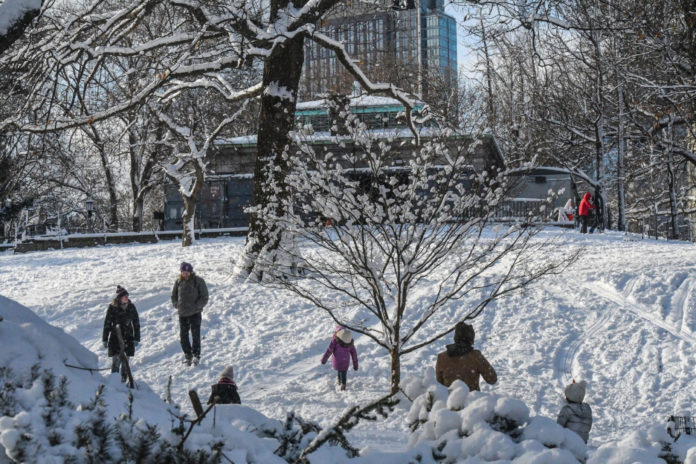Plunging temperatures across the U.S. Northeast are set to bring some of the coldest days this winter and threaten to bury western New York in snow while driving up heating demand to the highest in eight years.
New York City is expected to dip to 13 degrees Fahrenheit (-11 degrees Celsius) Monday night, the coldest since February 2019, while Washington will see temperatures sink to 19 degrees, according to the National Weather Service. Boston will drop to 5 degrees late Tuesday.
The chill follows a warmer-than-normal December across the mid-Atlantic and Northeast, including New York, Washington, Philadelphia and Boston. Such cold will likely bring a shock to many because winters have been pretty mild in the last few years, said David Roth, senior branch forecaster at the U.S. Weather Prediction Center.
“Basically it’s winter and it really hasn’t been for the last couple of years,” Roth said, adding that he’s not expecting any record lows over parts of the Northeast.
The chill is due to shifting weather patterns that have brought a low pressure trough across the eastern U.S., resulting in colder temperatures and more unsettled weather. The result is “mostly regular winter cold” but an “impressive” frequency and duration, according to Matt Rogers, president of the Commodity Weather Group.
The cold will likely linger below normal across the Great Lakes and Northeast through Jan. 24, according to the group. Rogers also sees this month’s heating degree days values — a measure of the temperature’s impact on energy demand — hitting the coldest level since January 2014.
The cold and winds could bring as much as 20 inches (50.8 centimeters) of snow across parts of western New York through Tuesday. Gusts could make temperatures feel as cold as minus 35 Fahrenheit. In the upper Midwest, which will also be caught in the freeze, windchills could fall to as low as 50 degrees below zero.
Forecasters are watching the Arctic for signs that a polar vortex — a girdle of winds around the north pole — is weakening and ready to spill frigid air south. A weakened vortex can unleash frigid temperatures deep into the temperate regions of Asia, North America and Europe. Such an outbreak crippled the Texas power grid last year and caused the frigid temperatures that ripped into the eastern U.S. eight years ago.
Rogers doesn’t see temperatures this time sinking to those levels seen in January 2014, even though exactly how the cold will mix with unsettled weather sweeping into the region remains a big unknown.
(c) 2022, Bloomberg · Brian K Sullivan
{Matzav.com}
